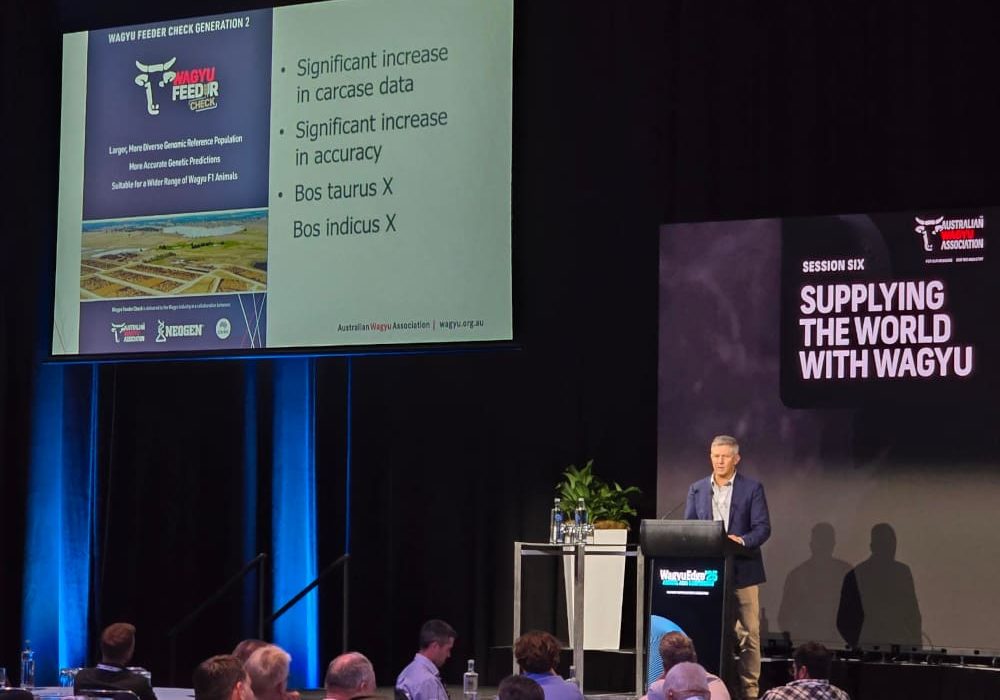
AWA CEO Matt McDonagh launching WFC Gen II at WagyuEdge, Perth
BEEF producers will now have access to the most comprehensive form of genetic predictions for Wagyu cross cattle in the supply chain as Generation II of Wagyu Feeder Check is introduced.
Launched last week at the WagyuEdge’25 Conference held at the Perth Convention and Exhibition Centre, WA, which was attended by over 550 delegates, the latest version of Wagyu Feeder Check features enhancements that will benefit the entire Wagyu industry.
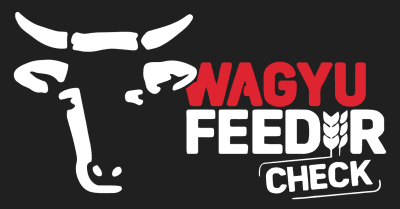 Wagyu Feeder Check initially debuted in the marketplace in April 2023 as a genomic-based tool to identify performance difference in the feedlot of Australian Wagyu and Wagyu cross cattle.
Wagyu Feeder Check initially debuted in the marketplace in April 2023 as a genomic-based tool to identify performance difference in the feedlot of Australian Wagyu and Wagyu cross cattle.
It reports genetic predictions for five key traits including feedlot average daily gain, carcase weight, subcutaneous fat depth, eye muscle area, and marble score, as well as a Wagyu Feeder Index indicating the overall commercial value ranking of each individual animal in a typical Wagyu long-fed feedlot finishing program.
Latest enhancements
The latest enhancements include a larger, more diverse reference population, more accurate genetic predictions, and suitability for a wider range of Wagyu-cross cattle.
The genomic reference population utilised in Wagyu Feeder Check version 2 has doubled from 8316 to 17,301 animals.
Originally only available to Wagyu-Angus cross F1 producers, the demand for the test to be suitable for Wagyu/Indicus cross cattle in the north was evident.
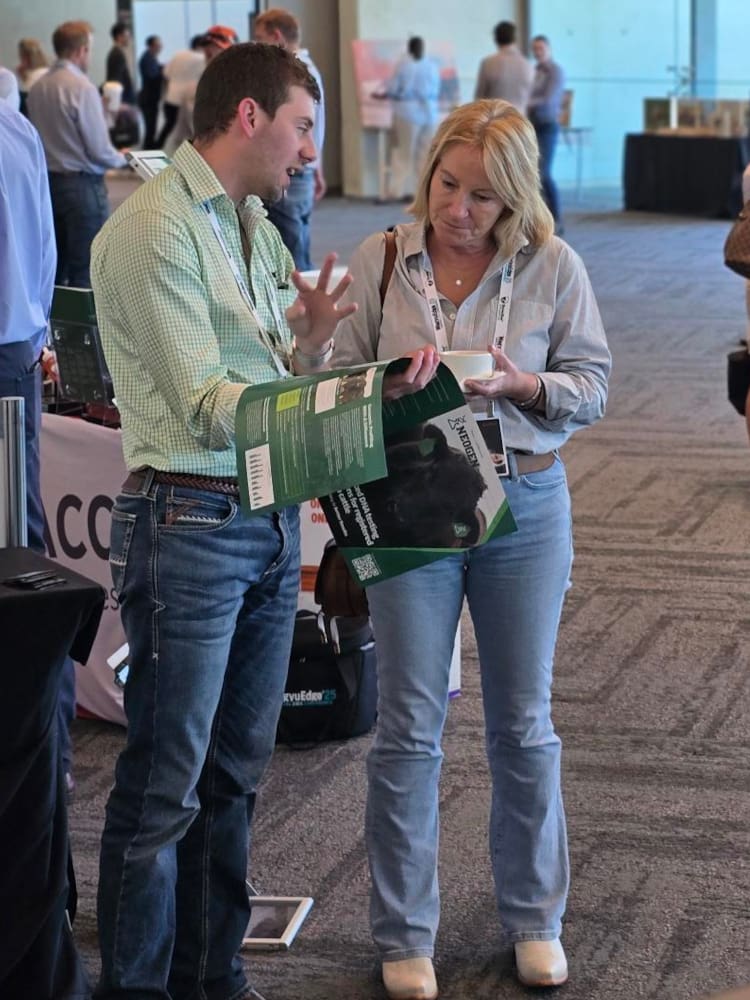
Neogen, Genomics Specialist for Northern Beef, Harrison (Harry) Stewart providing some advice at WagyuEdge, Perth
“In the north we saw a large interest and demand to have more genetic insight in Wagyu cross Indicus influenced animals to make more informed breeding and business decisions,” Neogen Genomics Specialist – Northern Beef Harrison Stewart said.
“This led to the work done to incorporate Bos indicus and other breeds to the reference population for Wagyu Feeder Check version 2.”
The genomic reference population for generation 2 of WFC is comprised of 20pc purebred Wagyu, 60pc Wagyu/Angus cross and 15pc Wagyu/Bos indicus animals, while the remaining 5pc are Wagyu/Holstein and Wagyu/Bos taurus animals.
With a larger, more genetically diverse genomic reference population, the predictive ability of the genetic predictions has increased with accuracies of 60-70pc.
Announcing the launch of the updated Wagyu Feeder Check version 2, Australian Wagyu Association chief executive officer Dr Matt McDonagh encouraged producers using the product to ensure they are submitting carcase data back to the AWA to get the $5 per head rebate.
“Animals tested on WFC version 1 will have 12 months to get carcase data back until the rebate expires,” he said.
“Wagyu Feeder Check version 2 tested animals will have two years to submit carcase data.
Dr McDonagh said the new generation of Wagyu Feeder Check is a useful tool in breeding and managing F1 animals, but it also helps collect data that fuels Breedplan and produces more accurate estimated breeding values for sires.
To learn more about Wagyu Feeder Check Gen II visit neogenaustralasia.com.au
Beef supply chain specialist added to the mix
Driven by a commitment to advancing technology adoption and supporting producers in the integration of genomics, Neogen has restructured its field team to deliver more specialised and high-quality guidance to producers.
Neogen Australasia senior regional director Bobby Creasman said Neogen is positioning itself as experienced and trusted professionals within the genomic space.
“Restructuring the team to focus on specific sectors should be a great way to accelerate adoption and understanding of genomics,” Bobby said.
“It marries people with experience and exposure in specific sectors (for example beef) to these industries with the highest demand and need for technologies that will enable more efficient production.”
Aligned with this, previous Queensland territory manager Harrison Stewart, Toowoomba, has moved into the Genomics Specialist – Northern Beef role, while New South Wales territory manager Hannah Powe, Cargo, has transitioned into the Genomics Specialist – Southern Beef role.
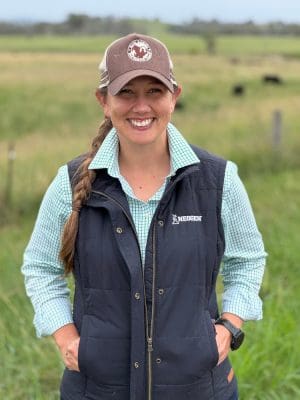
Newly appointed Neogen, Genomics Specialist for Beef Supply Chain, Laura Garland.
The company also welcomes Laura Garland in the newly established role of Genomics Specialist – Beef Supply Chain, who is situated near Armidale, NSW.
Laura’s appointment is a result of the ever-expanding range of new and novel genomic tools now becoming available for use outside of the breeding sector, such as genomic tools for directing steers into supply chains based on the suitability of their genetics, verification of breed content, and traceability of product through the supply chain.
The creation of this new role specifically dedicated to the commercial supply chain ensures that Neogen can adequately support this sector and is aligned with Neogen’s commitment to provide premium genomic products and service to the Australian livestock industry.
In her role, Laura will work directly with livestock agents, feedlots, processors, and brand owners to drive adoption of genomics, and its value, in the commercial beef supply chain.
Prior to joining Neogen, Laura worked for Meat & Livestock Australia within the Producer Consultation Program, as the Producer Engagement Officer for Meat Standards Australia (MSA), as well as a Livestock Extension Officer with Agriculture Victoria.
Since joining the team in February, she has been involved in establishing a starter program that will enable feedlots and commercial producers to pilot and evaluate genomic testing within their operations.
“It is an exciting and progressive space to be working in,” Laura said.
“The aim is to increase the uptake and use of genomic products for selection and efficiency in the feedlot sector.
“By understanding the predictive performance of cattle, these tools provide an opportunity for feedlots and supply chains to optimise and improve the way they direct cattle into feeding programs and ultimately meeting market specifications.
“Right steer, right place.”
 Discover Neogen’s range of genomic solutions for feedlot cattle at neogenaustralasia.com.au
Discover Neogen’s range of genomic solutions for feedlot cattle at neogenaustralasia.com.au

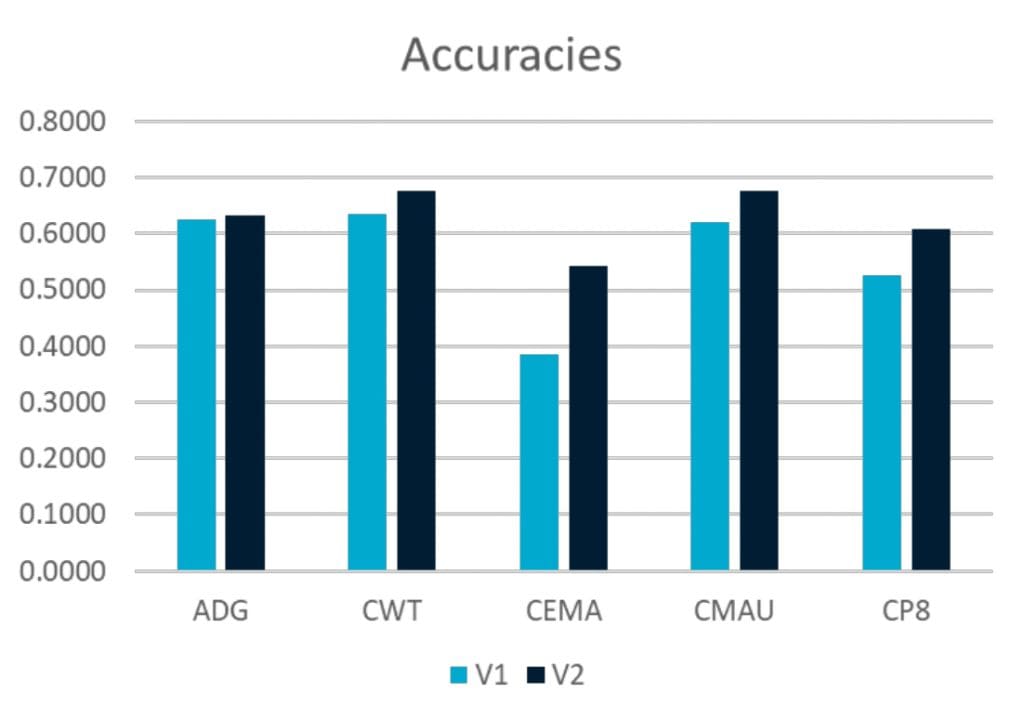
HAVE YOUR SAY